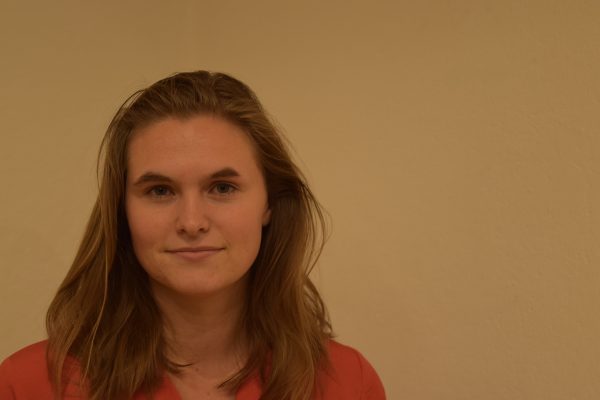Putnam Returns to Continue Mission
November 19, 2016
To pursue something you are passionate about is something we all strive for, but finding work that aligns with your passions can be extremely difficult. By determination and luck, Eliza Putnam, Fordham College at Lincoln Center (FCLC) ’18, found this ideal combination in the city of Puebla, Mexico.
After starting in 2014 and attending Fordham for a year, Putnam decided to apply for a three-month volunteer position with an organization called the Poblano Institute of Rehabilitation, otherwise known as IPODERAC. IPODERAC focuses their energy on providing permanent homes for homeless youth who have experienced neglect, abuse, exploitation or trafficking, and have been put in a vulnerable position that requires a full-time living situation until they are adults.
Unlike foster care systems in the United States, Mexico’s child care system consists mostly of institution-based orphanages. According to Putnam, these institutions will often provide food and shelter for children until they are 18 years of age, at which point they are left to fend for themselves without any skills or understanding of the workforce.
“IPODERAC, 50 years ago when it started, said we don’t want to do that, what we want to do is figure out a way that these kids can actually be productive members of society, be part of a community, feel like they can live in solidarity, feel like they can be responsible for themselves, feel like they can care for themselves and care for the people around them, especially when they face so much hardship as young children,” Putnam said.
She continued, “It’s really an organization that focuses more on an educational model that lets the kids be responsible for themselves, their actions, and their decisions.” With this model, kids who leave IPODERAC as they approach adulthood are able to either go on and continue schooling, or join the workforce with adequate knowledge of how to maneuver the system.
Putnam was introduced to the program after a teacher from her hometown in Vermont recommended it to her. “She told me one time,” Putnam elaborated, “you clearly are going to be spending time in Latin America, you clearly love working with kids, I implore you to go volunteer at this organization.”
In her position over the summer, Putnam worked directly with children between the ages of six and 10, supporting them in their daily lives. However, when her three months in Puebla came to an end, Putnam knew she could not leave. “It’s funny,” she said, “I went down there just to spend a summer there between my freshman and sophomore years.” Instead, she decided to take a gap semester in the fall of her sophomore year and spend the rest of the semester with IPODERAC.
“When I got down there, one, I immediately fell in love with the kids I was working with,” she said, “and then the organization was also in the middle of a capital campaign because right now it’s only an institution that supports boys – boys and young men – and they realized that girls face just as extreme conditions of poverty and violence.” Putnam’s passion for helping young children and working with a non-profit fit perfectly into IPODERAC’s model as an organization.
But her gap semester wasn’t always easy. “The hardest part was trying to know if you were doing the right thing,” Putnam explained. “It’s difficult both to know if the organization that you want to support is actually going to be helpful long-term or if it’s enabling the systems that are creating these problems in the first place and if your role in the organization is the right one.” Luckily, Putnam felt that her work with IPODERAC was worthwhile and pursued her passion for helping others and working with non-profits upon returning to the United States.
In March of 2016, Putnam applied for and received her dream internship: working at Democracy Now, an independent media organization that puts on a daily news hour. Having worked on fundraising in Mexico, Putnam felt that she could easily apply her skills to being a development and outreach intern with the organization. “I realized that this was something I was really good at, and that I might be able to apply my skills in fundraising to non-profits I believe in,” she said.
The most exciting part for Putnam during her time at Democracy Now has been working on Amy Goodman’s, the host and executive producer of Democracy Now, “100 City Speaking Tour.” This national tour aimed to bring together people who both loved Democracy Now and wanted to support local media organizations. As a young person who followed Democracy Now for many years, this internship and the opportunity to help with this project was a dream come true for Putnam.
However, in December, when her internship comes to an end, Putnam plans on taking steps in a different direction. “I’ve worked in development for about a year now, and I’m still doing volunteer work for IPODERAC.” She added, “I’m thinking next semester I’d like to do an internship that’s a little bit different from development work in non-profit: do some advocacy, work with kids directly, or I could do some policy work.”
When asked of her plans post-graduation, Putnam could not pinpoint exactly what she wanted. Instead, she shared these inspirational words: “My future plans are to be part of a community that I care about deeply, figure out how I can contribute to that community and support the people who are most vulnerable in that community, how can I feel fulfilled and how I can be happy.” While Putnam continues to search for the ideal career option, it is clear that she will continue to better whatever community she is a part of.










